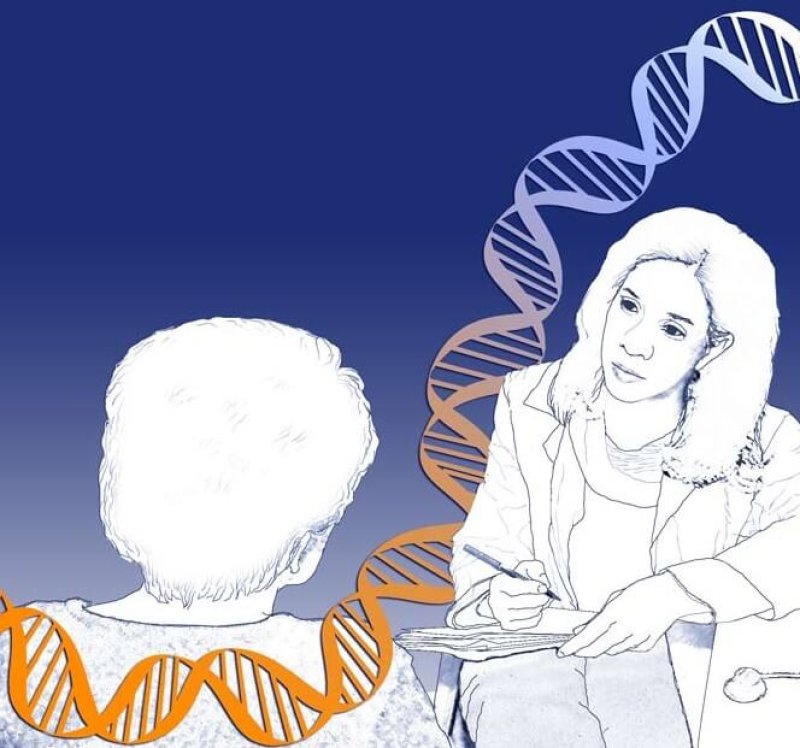Thirty years ago it was rare to seek out a genetic counselor when pregnant. Now, counseling services are nearly ubiquitous. Genetic counselors work not just with expectant parents, but also with patients who suffer from cancers and other genetically linked diseases.
Consequently, the number of genetic counselors have grown substantially, and in a relatively short period of time. So short, they are not licensed by most states in the same way as doctors and other healthcare providers.
In order to remedy that, many counselors have begun pushing their state legislatures to move forward legislation that would provide the necessary legal framework for their profession. This is important, proponents say, because it will help patients know they are going to a reputable counselor who can offer some guaranteed level of expertise.
But, in this quest for regulation, many states are tacking on legislative clauses that would essentially make that quality guarantee obsolete.
Most recently in Virginia, but also in other states, the legislation creating a regulatory framework includes a conscience clause. As Molly Redden writes, the clause makes it legal for counselors to refuse services and to withhold results.
“The law not only gives genetic counselors the right to refuse to help gay, lesbian, or unwed couples, but it also frees them to withhold a patient’s test results if the counselor suspects the information might lead her to have an abortion—although they cannot lie about the results. “The way the law is written, if a genetic counselor doesn’t think a patient will make ‘the right choice’ with the information you give them, well, then you don’t have to tell them,” says Claire Guthrie Gastañaga, the executive director of the ACLU of Virginia.”
In a potentially more threatening example, the counselor could simply fail to mention a patient’s results if the expectant parents didn’t know to ask about specific tests. The clauses indicate that a counselor may not lie about a result, but may chose to purposefully omit them.
It’s difficult to imagine another scenario in which specifics of a contracted service can be legally omitted. Even a pharmacist who doesn’t believe in birth control has to notify a woman that he’s not providing the pills. A woman can then chose to take her money elsewhere. But a counselor who fails to communicate results is truly doing harm and a patient has no way of knowing.
Conscience clauses directly fly in the face of the profession’s best practices, noted medical historian Alex Stern:
These conscience clauses are problematic for many reasons, not least of which is the fact that they violate the ethical guidelines of the profession’s flagship organization, the National Society of Genetic Counselors. Notably, the first value listed in the NSGC’s Code of Ethics in the section “Genetic Counselors and Their Clients” is to “serve those who seek services regardless of personal or external interests or biases.”
Conscience clause proponents argue that this part of the legislation prevents counselors from having to perform tasks that violate their moral and ethical codes. But Joel Frader, a medical humanities professor at Northwestern University identified the absurdity of these clauses in the actual practice of genetic counseling:
“Unless genetic counselors restrict their practice to screening adults for cancer or Huntington’s Disease, abortion needs to be part of their professional lexicon. “If you’re in the business of neonatal genetic counseling and you’re uncomfortable talking about abortion, you don’t need a conscience clause,” he says. “You need to think about whether you should find a new profession.”
And, as Amelia Thomson-DeVeaux points out, it’s already difficult for a genetic counselors to do their jobs effectively because of abortion restrictions in many of the same states enacting the clauses.
Even if the conscience clauses don’t pose an immediate problem, genetic counselors may find their work stymied by another strain of anti-choice restriction: bans on abortion after 20 weeks. Disorders caused by genetic abnormalities often can’t be detected until the second trimester of pregnancy. As a result, many of the pregnant women who are diagnosed with fetal abnormalities and choose to terminate their pregnancy don’t seek an abortion until after the 20-week cutoff. These restrictions force genetic counselors to send patients seeking abortion after 20 weeks to clinics outside the state, a stressful and expensive process.
Additional Resources:
- Genetic pre-natal test opens window to improved diagnoses, stirs concerns, Genetic Literacy Project
- Angelina Jolie fallout: Should counseling be required with DNA screenings?, Genetic Literacy Project































